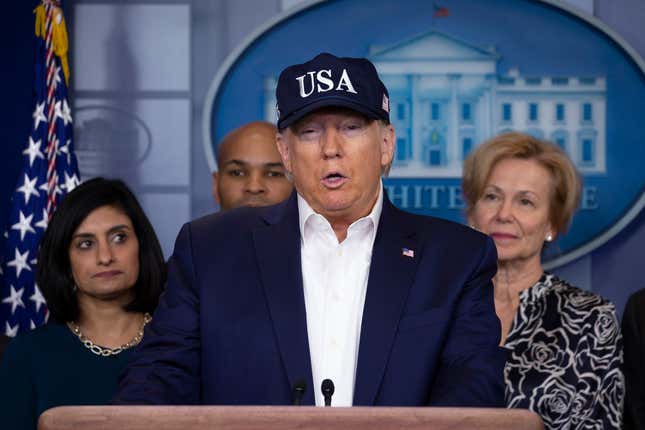
It’s crucial to remember, when attempting to place both the Trump presidency and the devotion he still receives today in the proper context, that the idea that white people have voted and will continue to vote against their self-interests when supporting him is a fallacy. He is president because, for his tens of millions of white fans, Trump acknowledged and actively pledged to reverse what they believe(d) to be the downward trending status of whiteness.
Perhaps this meant they’d be led by a confidence man set to pull his biggest grift yet, and I’m certain many knew and continue to know that. But if you consider white supremacy to be as essential as a soul—which it is—then a friend, a job, a house, a spouse, a life is a modest sacrifice.
The investment in this decaying, Matryoshka doll of hierarchy is so deep, so vital, so impossible to extract themselves from, that anything that challenges and/or contradicts Donald Trump transmutes into a personal indictment. This is the psychosis that compels a woman like Katie Williams, a former Ms. Nevada State and current candidate for the Clark County School Board of Trustees in Las Vegas, to brag about eating at a crowded Red Robin during a global pandemic, just to “own the libs.”
For her to admit that the coronavirus is real, would be to admit that Trump was wrong. And if Trump was wrong, we were right. And if we were right—about anything, ever—the genuinely psychotic belief that whiteness grants her a ceaseless exception, exempting her from this sort of harm, crumbles with it
Unfortunately, for us—and for them, the true believers, too—our federal government took its cues from him. The sluggishness in our national response is mostly due to the president’s yawning narcissism, as he attempted to minimize the threat because it might damage his reelection chances, and also attempted to find a way to monopolize a possible vaccine, and is also attempting to brand the coronavirus as “Chinese” because a brand allows for blame, as he’s diametrically opposed to accepting any himself. He also happens to be uniquely unqualified for this sort of challenge. His usual tactics of bullying, shaming, insulting, tantrum throwing, and tweeting ain’t shit against this disease, and thousands of Americans will die because the virus of white supremacy built super highways for it.
This—death—has always been the natural endgame of white supremacy. Of course, those who pay metaphysical tithes to it don’t actively wish to die, as they believe that what they’re doing is an act of preservation. Self-preservation, but preservation nonetheless. But this fealty to hierarchy prioritizes the status of whiteness over everything else and regards anything that appears to defy the tenets of it as alien. A threat. A danger. A lie.
When you accept this—that white supremacy drives America’s response to the coronavirus—a survey like this makes sense:
In a Quinnipiac University poll released this week, roughly six in 10 Republican voters nationwide said they were not especially concerned that the coronavirus would disrupt their lives. Two-thirds of Democratic voters said the opposite. All together, a slight majority of Americans expressed serious concern.
And Democratic voters were about twice as likely as Republicans to worry that they or someone they knew could catch the virus, the poll found. Sixty-three percent of Republican voters said they were relatively unconcerned.
Where does all this leave us? Well, while doing book talks and events over the past year, a recurring and annoying as fuck question I receive from white people in attendance is whether I have hope. Which is a way of asking if I have hope for America. Which is a way of asking if I have hope for white people.
My answer is always that I have hope for what I can see, touch, and taste—my family, my friends, my neighborhood; even the people in the audience (ultimately, the people and places I personally interact with)—but that’s the extent of it. And today, if asked if America’s fidelity to white supremacy will eventually destroy us all, my answer is simple: I hope not.

